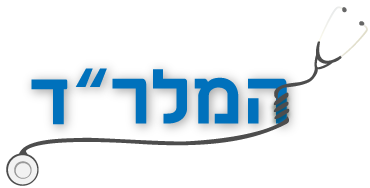נסיון אישי או EBM
נסיוננו האישי מעיב לעיתים על הידע הרפואי המבוסס. האם זוהי גזרת גורל או שניתן לרתום זאת לטובה?
כתבה מהניו אינגלנד.
מקור: http://healthpolicyandreform.nejm.org/?p=14876
PERSPECTIVE
Level IV Evidence — Adverse Anecdote and Clinical Practice
NEJM | July 6, 2011 | Topics: Quality of Care
Alison M. Stuebe, M.D.
When I entered medical school in 1997, I joined a generation of doctors that was supposed to practice evidence-based medicine. First in small groups, and later during clinical rotations, we learned to interpret the medical literature and apply the conclusions of randomized, controlled trials to our clinical decision making. Working within this new paradigm, we were going to rise above the apprentice-based training of our forbears and make decisions on the basis of gold-standard, Level I evidence.
When I started residency, I remember proudly stating my intention to help move obstetrics into the world of evidence-based medicine. During my intern year, I memorized the results of Mary Hannah’s Term Breech,1 Term PROM,2 and Postterm3 randomized trials. At board rounds, my fellow interns and I would recite the sample size and key findings of each study. These studies were the gold standard, superior to Level II observational studies and Level III expert opinion. We were determined to manage our patients’ care on the basis of data, not dogma.
During a decade of practicing obstetrics, I’ve continued to try to rely on Level I evidence when making clinical decisions. But real life has intruded on the carefully catalogued odds ratios that I memorized as an intern. I’ve come to appreciate that the influence of a randomized, controlled trial — no matter how well conducted or generalizable — pales in comparison with that of the audible bleeding of a profound postpartum hemorrhage. As I tell residents and fellows, in the human mind, adverse anecdote — what I’ve come to call Level IV evidence — is more convincing than even the tightest of confidence intervals.
The part of me that aspired to higher-order, data-based thinking often despairs to realize that I seem to treat patients on the basis of a personal case series. I am supposed to be a clinical scientist. I should be smarter than this.
But the instinct that drives us to act on the basis of Level IV evidence dates far back into our evolutionary history. Neuroscientists have demonstrated that strong emotions modulate learning and memory.4 Indeed, the administration of stress hormones during a learning task improves retention weeks later. It stands to reason, then, that adverse personal experience will create more compelling memories than reading a Cochrane review.
That’s why, when I take a resident through a cesarean section, I have an adverse anecdote to share for every step of the operation. Taking down the rectus from the fascia brings back the time my team lacerated the small bowel of a primiparous women with a prior myomectomy. The uterine incision cues the memory of the night I cut into the infant’s cheek during an emergency C-section performed under general anesthesia because of repetitive late decelerations. And I always pause when we irrigate the cul de sac, checking for a potentially fatal retroperitoneal hematoma.
Randomized, controlled trials may be the gold standard, but their results can take decades to make their way from the pages of peer-reviewed medical journals to actual effects on routine care.5 Adverse anecdote can transform a clinician’s practice patterns in an instant.
I used to think that I needed to resist Level IV evidence — I believed that I could, through sheer willpower, force my brain to place more weight on the meta-analysis of randomized, controlled trials than on the newborn seizing in the neonatal intensive care unit. But I’ve come to realize that no amount of willpower can suppress midbrain structures that have probably governed memory formation since the Pleistocene epoch.
The key is to use these flashes of physician anguish to illuminate the Level I evidence and identify the real risk factors for a bad outcome. I suspect the amygdala did not evolve to store odds ratios and heterogeneity P scores, but when an adverse event has prompted me to review the literature, I come away with a clearer understanding. There’s nothing like a baby free-floating in the abdomen to drive home the lessons from a prospective study of risk factors for uterine rupture. And that clarity of understanding will serve the next at-risk patient I encounter.
I often tell residents and medical students, “The only thing that actually changes practice is adverse anecdote.” I used to think this was a fundamental weakness of human nature. But it can be one of our greatest strengths. Informed adverse anecdote transforms scattered data into sound clinical judgment. And that clinical judgment just might save my next patient’s life.

